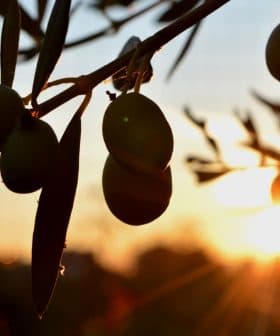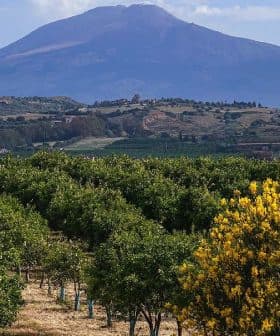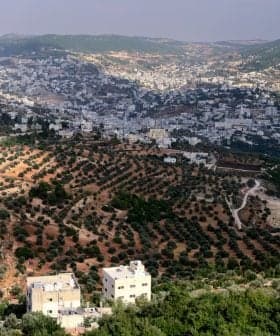In Greece, Millers Call for Subsidies to Soften Impact of Rising Costs
Olive oil mill owners want the same energy subsidies given to bakers and bread manufacturers to cover the cost of rising energy bills.
Rising energy prices in Greece are posing a threat to olive oil mill owners ahead of a promising harvest, leading miller and producer associations to request increased financial aid from the government to offset costs. Farmers in various olive oil-producing regions of Greece have expressed concerns about mounting production costs and have called for subsidies to reduce the impact on producers and maintain the balance of the industry.
Energy prices are on the rise in Greece as everywhere in Europe, threatening to derail the budgets of the country’s olive oil mill owners ahead of a bountiful harvest this year.
The goal is not to disrupt the balance of producers, millers, traders and consumers at the expense of the product and its future prospects.
To overcome rising production costs facing the sector, miller and producer associations from across the country have asked the Greek government to give more money to mills from the European funds allocated for the energy transition of industries and manufacturing facilities.
On Crete, the farmers association of Kritsa, a large cooperative of 1,350 olive growers and olive oil producers with 300,000 olive trees, operates a modern mill near the city of Agios Nikolaos on the eastern part of the island.
Despite the anticipation of a high olive oil yield in the area, the association is highly concerned with mounting production costs.
See Also:E.U. Green Lights €100M Subsidy for Italian Olive Millers“We expect a strong harvest, but we also expect the cost of extracting olive oil to increase sharply this season due to the higher prices of energy,” Yianna Peraki, an association member, told Olive Oil Times. “We have sent a letter to the ministers of agriculture and finance asking them to increase the funds directed to mills to reduce the energy costs.”
“Otherwise, we will be forced to increase our olive oil entitlements [a percentage of the olive oil produced from each batch of olives with which millers in Greece are paid], which will make our producers unhappy,” she added.
In the letter to the two ministers, which was seen by Olive Oil Times, the Kritsa association said that mills are in a deadlock having to absorb the additional cost of olive processing or alternatively transfer the cost to producers.
“The increased costs will have a series of undesired side effects,” the association wrote. “The only realistic and fair solution is to subsidize the energy consumption of olive oil mills similarly to bakeries for the five-month time period from November to March.”
“The goal is not to disrupt the balance of producers, millers, traders and consumers at the expense of the product and its future prospects,” they added.
Since September, bakeries and large bread manufacturing facilities in Greece have been funded with an increased state subsidy of €604 per kilowatt-hour, which covers 89 percent of the rise in their energy bills.
The demand of the Cretan producers for stronger financial aid from the state was echoed by their counterparts in other olive oil-producing regions of the country.
See Also:Producers in Greece Generate Electricity with Olive Mill WastewaterIn Laconia, in the southern Peloponnese, local millers have also asked for similar subsidies to those of the bread industries to secure a “decent living.”
They argued that the mills operating costs have risen by 50 percent this year compared to 2019 despite the comparatively higher olive oil prices at origin this year.
“The olive oil mills face the dilemma to increase the olive oil entitlements they receive [from the producers] or suspend their operation, which will put an extra burden on the producers who are already confronted with increased costs in their growing and harvesting operations,” the millers’ representatives said.
Millers and producers representing almost every olive oil-producing region in Greece have made similar requests for increased funding, including the regions of Ilia and Messenia in the Peloponnese, Aetolia-Acarnania and Magnesia in central Greece, Chalkidiki and Kavala in northern Greece, and the island of Lesbos in the eastern Aegean Sea.
Meanwhile, Yiorgos Georgantas, the Greek agriculture minister, prompted the country’s farmers and growers to form cooperatives as a means to reduce production costs and achieve better prices.
“There is only one solution to the problem of fragmented farms so as not to alter the Greek tradition and break the ties that urban population has had for years with their homeland,” Georgantas said at an agricultural trade show in Thessaloniki. “And the solution is the cooperative schemes.”
The minister added that cooperation among farmers promotes trade and enables extensive use of new technologies, which can reduce costs and increase the production quantity.
“The future of the Greek rural economy lies in cooperative schemes,” Georgantas concluded.
Share this article









